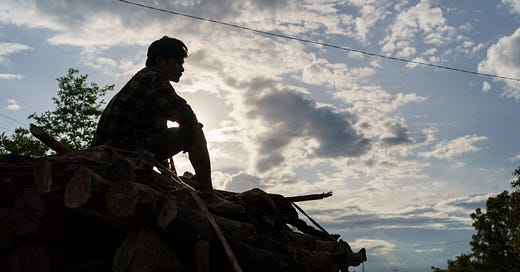Cambodia Microfinance Should be Taxed to Address Climate Change Impact, Research Says
Borrowing to Make Ends Meet
Photo: Thomas Cristofoletti, Royal Holloway University of London.
Reading about microfinance (or more strictly speaking microcredit) in poor countries, I have been struck that there is no statistically robust evidence that it does any good.
The loans aim at allowing borrowers to start and grow small businesses. There may be some relatively well established small entrepreneurs who benefit from having a new source of credit. But they only account for a small proportion of microcredit borrowers.
On the whole, the evidence is, loading up people in poor countries with debt does not help them in any way - certainly not to become more resilient to climate change as the research below argues. So why then is there a whole international industry, backed by Western financial institutions, which lends to the global poor on the basis that they are helping small businesses?
I spoke about this with Vincent Guermond of Royal Holloway, University of London. He recently took part in field research in microfinance impacts in Cambodia. You can read my article in The Diplomat here and the full research report here.




